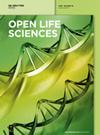Impact of novel herbicide based on synthetic auxins and ALS inhibitor on weed control
IF 1.7
4区 生物学
Q3 BIOLOGY
引用次数: 0
Abstract
Delayed sowing of winter cereals or unfavorable weather conditions in autumn may make it impossible to carry out herbicide treatment in autumn. In such cases, weed control should be started in the spring. During this time, the plantation should be protected as effectively as possible because the weeds are at an advanced stage of growth. Therefore, they are less sensitive to applied herbicides. In the treatment, it is worth using a mixture of different mechanisms of action. Studies were conducted to evaluate the effectiveness of a band of tribenuron-methyl, and MCPA applied as soluble granules in spring control of dicotyledonous in winter cereals. The biological efficacy of herbicides was estimated in the 25 field experiments on winter cereals in Poland. Postemergence, a spring application of tribenuron-methyl + MCPA, effectively controls the majority of weed species present in spring:基于合成辅酶和 ALS 抑制剂的新型除草剂对除草的影响
冬季谷物播种延迟或秋季不利的天气条件可能导致无法在秋季进行除草剂处理。在这种情况下,应在春季开始除草。在此期间,应尽可能有效地保护种植园,因为杂草正处于生长后期。因此,它们对施用的除草剂不太敏感。在处理过程中,值得使用不同作用机制的混合物。研究评估了 Tribenuron-methyl 和 MCPA 作为可溶性颗粒剂在春季防治冬季谷物中双子叶杂草的效果。在波兰进行的 25 项冬季谷物田间试验中,对除草剂的生物效力进行了评估。出苗后,春季施用三苯甲嘧啶+MCPA,可有效控制春季出现的大多数杂草种类:这些杂草包括:芹菜(Anthemis arvensis)、甘蓝(Brassica napus)、荠菜(Capsella bursa-pastoris)、矢车菊(Centaurea cyanus)、紫花地丁(Lamium purpureum)、母菊(Matricaria chamomilla)、三棱草(Tripleurospermum inodorum)、茎叶苋(Stellaria media)和枳壳(Thlaspi arvense)。对酢浆草、Viola arvensis 和 Galium aparine 的防治效果令人满意。建议在春季对冬季谷物施用含 MCPA 的 Tribenuron-methyl 除草剂。为防止杂草产生抗药性,最好同时使用两种活性物质。
本文章由计算机程序翻译,如有差异,请以英文原文为准。
求助全文
约1分钟内获得全文
求助全文
来源期刊

Open Life Sciences
BIOLOGY-
CiteScore
2.50
自引率
4.50%
发文量
131
审稿时长
43 weeks
期刊介绍:
Open Life Sciences (previously Central European Journal of Biology) is a fast growing peer-reviewed journal, devoted to scholarly research in all areas of life sciences, such as molecular biology, plant science, biotechnology, cell biology, biochemistry, biophysics, microbiology and virology, ecology, differentiation and development, genetics and many others. Open Life Sciences assures top quality of published data through critical peer review and editorial involvement throughout the whole publication process. Thanks to the Open Access model of publishing, it also offers unrestricted access to published articles for all users.
 求助内容:
求助内容: 应助结果提醒方式:
应助结果提醒方式:


